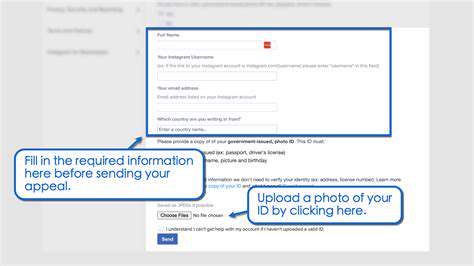How to Appeal a Visa Rejection
Addressing Specific Visa Application Concerns
Understanding the Rejection Letter
A detailed understanding of the visa rejection letter is key for a strong appeal. Focus on the specific reasons for rejection. Identify the exact issues, such as missing documents, inconsistencies, or a perceived lack of intent to return home. This analysis forms the basis of your appeal, helping you address each point effectively.
Thoroughly review the letter, noting any unmet requirements. Did you miss a document? Were your travel plans unclear? Understanding the rejection reasons is essential for a successful rebuttal.
Addressing Documentation Issues
If the rejection was due to insufficient or incorrect documents, gather all relevant supporting materials. This might include bank statements, employment contracts, or invitation letters. Ensure these documents are current, accurate, and clearly show your eligibility. Present them in an organized way, with brief explanations of their relevance.
If a document was deemed insufficient, get certified copies and consult an immigration lawyer if needed to ensure proper formatting. This step proves your preparedness and understanding of the visa process.
Demonstrating Genuine Intent to Return
Visa officers often check the applicant's intent to return home. A strong appeal should clearly show this commitment. Provide detailed travel plans, including the trip's purpose, activities, and return arrangements. This could include flight confirmations, hotel bookings, or contact details of people you'll visit. Highlight ties to your home country, like family, job, or investments, to show your intent to return.
Explaining Discrepancies in Information
If the rejection notes inconsistencies between your application and supporting documents, address these directly. Explain the reasons for any differences, with verifiable evidence. Avoid vague language; provide clear, truthful explanations for any discrepancies.
Highlighting Improvements Since the Application
If your situation has improved since the initial application, such as a better job or increased financial stability, highlight these in your appeal. Provide updated documents and explain how these improvements strengthen your eligibility. This shows a proactive approach and addresses past concerns.
Presenting a Compelling Narrative
Create a compelling story that showcases your character, reasons for seeking a visa, and commitment to returning home. Highlight your strengths, achievements, and goals. A well-articulated narrative demonstrates your sincerity and desire to contribute positively while following immigration rules.
Seeking Professional Guidance
Consulting an immigration lawyer or visa consultant can boost your chances of success. They can spot potential weaknesses in your appeal and guide you in addressing them effectively. A professional ensures your appeal is well-structured, meets all requirements, and presents a strong case for reconsideration.
Submitting Your Appeal and Following Up

Understanding the Appeal Process
Before submitting your appeal, thoroughly review the reasons for the initial decision. Understanding the specific grounds for rejection helps you craft a targeted appeal that addresses the concerns directly. Examine any supporting documentation or evidence from the original assessment. Reviewing relevant policies and guidelines is also essential for showing a clear grasp of the criteria.
Familiarize yourself with the appeal procedures outlined by the relevant authority. Know the submission timeline, required documents, and appeal committee contact details to ensure a smooth process. This information is usually on the organization's website or through official channels.
Preparing Your Appeal Letter
Your appeal letter should be concise, organized, and clearly state your reasons for appealing. Start by stating the original decision and the specific aspects you're challenging. Explain why you believe the decision was incorrect or unfair, citing specific evidence and relevant policies.
Supporting evidence is crucial. Ensure all relevant documents are attached to the appeal letter. This evidence should directly address the concerns raised in the initial decision.
Documenting Your Case
Thorough documentation is key for a strong appeal. Gather all relevant documents, including correspondence, records, and evidence. Organize these chronologically and logically, making them easy to access and clearly labeled. This approach helps the appeal committee review your case efficiently.
Submitting Your Appeal
Once you've compiled all necessary documents and drafted your appeal letter, submit it as instructed. Follow the appeal committee's guidelines on deadlines, format, and contact details. Keep a record of the submission date to track your appeal's progress.
Following Up and Seeking Clarification
After submitting your appeal, follow up with the relevant authority to check its status. This proactive step ensures your appeal is processed efficiently. If you encounter delays or need clarification, contact the relevant personnel. Be polite and professional, clearly stating your request.
![How to Pack a Carry On Only [Minimalist Guide]](/static/images/27/2025-05/AccessoriesandDocuments3AKeepingitCompactandOrganized.jpg)
![Top 10 Adventure Destinations in the World [2025]](/static/images/27/2025-05/ConqueringtheHimalayas3AMountaineeringandTrekkinginNepal.jpg)



![The Ultimate Packing List for Any Trip [Printable]](/static/images/27/2025-05/ToiletriesandMedications.jpg)
![How to Apply for a Tourist Visa to the USA [Step by Step]](/static/images/27/2025-06/SchedulingandAttendingYourUSVisaInterview.jpg)

